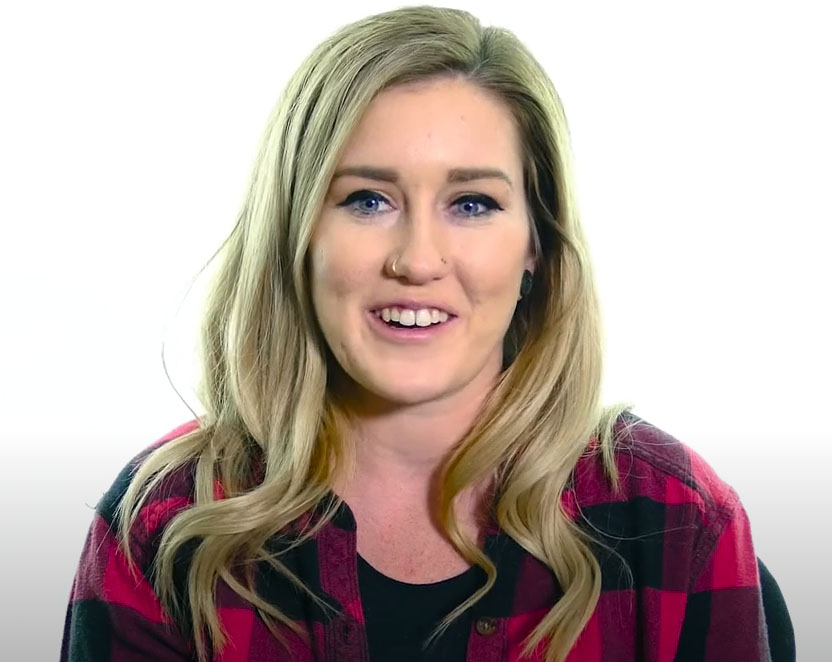
Opiate addiction is a serious and growing public health problem. As the opioid crisis continues to devastate communities across the nation, it's more important than ever to understand how opiates can cause dependence and what treatments are available for those struggling with addiction.
This article will provide an overview of opiate addiction, its causes and effects, as well as information about Inner Awakenings treatment options.
Opiate use has become an epidemic in recent years, with many people becoming addicted after taking prescription painkillers or using illegal drugs like heroin. The physical and psychological impacts of this addiction can be devastating and long-lasting--but there is hope.
With proper support from medical professionals, family members, and other resources, individuals suffering from opiate addiction can find help and achieve lasting recovery.
Opiate addiction is an epidemic that has been affecting the United States for decades. In fact, according to a recent study from the Centers for Disease Control and Prevention (CDC), every day more than 130 people in America die from opioid overdoses.
This alarming statistic speaks to the magnitude of this crisis and highlights the need for greater awareness about drug misuse and its consequences.
The medical community recognizes opiates as highly addictive drugs with powerful effects on those who use them without proper supervision or instruction. One of the most prominent indications of opiate abuse is recurring withdrawal symptoms that can include nausea, insomnia, muscle aches, irritability, anxiety and depression.
These physical and emotional side effects are often cited by users as reasons they continue using these substances despite increasingly dangerous consequences. Inner Awakenings Treatment options such as medication-assisted therapy combined with counseling have proven effective strategies in managing cravings and helping people break their cycle of addiction.
Opiate addiction is a complex issue that can be caused by many different factors. One of the major contributors to opiate addiction is prescription misuse, when patients take more than the prescribed dose or do not follow their doctor's instructions for use.
Additionally, peer pressure and social influence may lead individuals down a dangerous path towards opiate abuse, as individuals attempt to keep up with peers who are already using drugs recreationally.
The long-term effects of opiate addiction can be debilitating both physically and mentally, leading to serious health problems such as respiratory depression and cardiovascular disease. In some cases, withdrawal symptoms can be life-threatening if an individual abruptly stops taking these powerful medications without medical supervision:
It is essential to seek help from medical professionals if you or someone around you may be at risk of misusing prescription opioids, in order to avoid the damaging consequences associated with this dangerous habit. Early intervention through education, support systems, and medication management are key components in preventing people from becoming addicted to opioid medications.
Opiate addiction can be viewed as a global epidemic, and it’s only getting worse. But why?
Unquestionably because of the way our society has embraced this drug-culture with open arms! People are so wrapped up in their own little worlds that they don't even recognize the emotional distress and social stigma caused by opiate addiction. It's like living in an alternate universe where people simply forget about all the pain and suffering that comes along with substance abuse.
The truth is, we are all responsible for the current state of affairs when it comes to opiate addiction. We have allowed ourselves to get caught up in a culture of indulgence, without acknowledging the consequences of our actions.
Unfortunately, until we start taking responsibility for these issues, things will not change – no matter how much effort is put into prevention or treatment programs.
Quitting alcohol cold turkey can be dangerous. Learn about how to safely detox from alcohol by reaching out. All calls are 100% free and confidential.
(888) 430-6018When it comes to treating opiate addiction, there are a number of options available.
Prescription medications such as buprenorphine and methadone can help suppress cravings for opioids and prevent people from experiencing withdrawal symptoms.
It's important to remember that these medications must be taken in conjunction with counseling and other forms of peer support.
Peer support groups provide an invaluable source of emotional support during recovery, allowing individuals to connect with others who have gone through similar experiences and offer advice on how best to cope with challenges associated with addiction.
It is also recommended that those overcoming opiate addiction seek out professional treatment programs if possible.
These programs involve cognitive-behavioral therapy (CBT) sessions designed to help the individual identify triggers for their addictive behaviors and develop strategies for managing them without falling back into old patterns of abuse.
CBT may be combined with relapse prevention techniques, which focus on developing life skills necessary to build a healthier lifestyle that doesn't revolve around drug use.
With the right combination of therapies tailored specifically to each individual’s needs, long-term success in recovering from opioid addiction is achievable.
Treating opiate addiction is a challenging and complex process that requires understanding, dedication, and patience. But it's worth every effort because breaking free from the grips of this powerful drug can bring you back to life in ways you never thought possible.
Achieving long-term recovery from opiate addiction involves more than just ending physical dependence; it also includes recognizing triggers, developing healthy coping strategies to deal with cravings, and gaining control over your behavior.
Here are some key steps for success:
It's important to remember that recovering from opiate addiction isn't easy but with commitment and perseverance it is achievable. Don't be afraid to reach out for support if needed; there are plenty of resources available for those struggling with addiction so seek them out! With a little bit of hard work and dedication anyone can overcome their addictions and live a healthier life.
Overcoming opiate addiction is a multi-faceted process that can take anywhere from several weeks to multiple years, depending on the individual's situation.
Medication assisted treatment (MAT) and therapy are two of the most effective methods for addressing the physical and psychological aspects of an opioid dependence.
Withdrawal symptoms during this journey can be intense and include nausea, vomiting, muscle aches, insomnia, anxiety or depression.
It is important to note that these withdrawal effects vary in severity – while some may find managing them more difficult than others, with proper support it is possible to successfully work through them.
Of course, there are alternative treatments for addiction!
For those looking to get away from the traditional medications used in medication assisted therapy and social support networks, you can look into holistic approaches such as yoga, mindfulness meditation, acupuncture or art therapy.
These methods allow you to focus on healing your mind, body and spirit while also connecting with others who may have gone through a similar experience.
While these methods aren't without their risks and challenges they may be beneficial if you're struggling with opiate addiction.
For those seeking help for opiate addiction, lifestyle changes can be a powerful part of the recovery process.
Taking time to focus on self-care and building healthy habits such as regular exercise, eating nutritiously, getting enough sleep and attending therapy sessions are all essential steps that can make an impact in someone's journey towards sobriety.
Making these small but significant adjustments to daily life takes commitment and effort, yet it is possible with help from supportive family members or friends, professional counselors and support groups.
Starting treatment for opiate addiction can be costly, but it's an investment worth making in the long run. Prevention strategies like support groups and lifestyle changes are key to mitigating the cost of treating opiate addiction - if a person is able to avoid relapsing, they will end up saving money overall.
With that being said, there are many options available when it comes to getting help with the costs associated with treatment; these range from insurance coverage to government grants and social services. It may take some time and effort to find what works best for you or your loved one, but know that resources exist and recovery is possible with the right kind of support.
Supporting someone with opiate addiction can be a difficult and trying experience for family members and friends.
Building trust is essential to the process, as it helps create a safe space in which the person struggling with addiction feels comfortable opening up about their experiences.
Establishing boundaries is also key; while it's important to show your loved one that you are there for them no matter what, advocating too much or enabling behavior can inadvertently make things worse.
Offering resources such as counseling services or local support groups can help provide an avenue through which they can start taking steps towards recovery.
Ultimately, being supportive without judgement is of utmost importance when helping someone battling opiate addiction.

The battle against opiate addiction is a difficult one, but it can be won. With the right treatment and support structure in place, individuals suffering from this affliction can regain control of their lives and live with purpose again.
It's important to remember that recovery looks different for everyone; some may take longer while others will find quicker success. By understanding our own unique needs and working closely with professionals, we can make progress towards overcoming our addictions.
We must never forget: hope endures!
Simile - Just as a phoenix rises from the ashes, so too can those struggling with opiate addiction rise above it and lead fulfilling lives.
Call us today to speak with an addiction counselor: 888-430-6018

© 2025 Inner Awakenings LLC. All Rights Reserved | Sitemap
